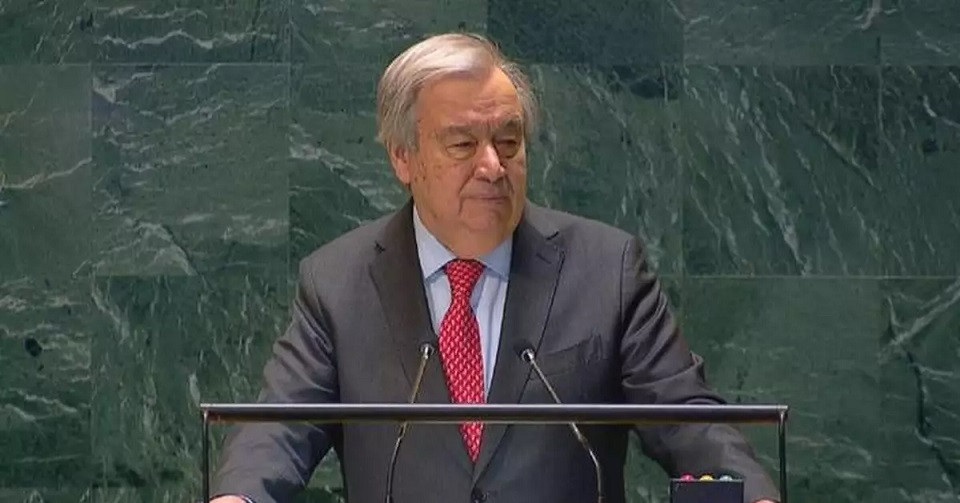In a recent statement that resonates with global economic realities, United Nations Secretary-General Antonio Guterres expressed a profound warning regarding the implications of trade wars. He declared that “nobody wins in a trade war,” a sentiment underscored by his spokesperson, Stephane Dujarric, amid escalating tensions in international trade. This caution arises in the context of the United States’ recent adoption of an executive order by President Donald Trump, which introduces “reciprocal tariffs” that impose a 10-percent minimum baseline tariff along with increased rates on selected trading partners.
The announcement of such tariffs has ignited significant apprehension among various stakeholders, primarily because of the ripple effects these measures can have on the global economy. As Dujarric elaborated, the most pressing concern for the UN lies with the vulnerable nations that stand poorly equipped to manage the detrimental impacts associated with trade disputes. These nations, often reliant on stable economic relationships, risk exacerbated poverty levels and hindered development prospects as markets respond to protectionist policies.
The negative implications of ongoing trade wars extend beyond immediate tariffs to broader repercussions for the UN Sustainable Development Goals (SDGs). As the conflict escalates, these objectives—which include eradicating poverty, promoting sustainable economic growth, and fostering global partnerships—are increasingly jeopardized. Countries that are already struggling to achieve these goals will find their efforts further complicated by rising barriers to trade and investment, which can stall economic progress and deepen inequality.
Adding to the gravity of the situation, the UN Conference on Trade and Development (UNCTAD) issued a statement emphasizing that the tariffs imposed by the United States pose significant threats to vulnerable countries. These economies often lack the resilience needed to navigate turbulent trade relationships and diminished global cooperation. With the global trade system entering a critical phase, the potential for retaliatory measures and further tariffs looms large, introducing uncertainty that could stifle international investment and economic growth.
Fundamentally, the notion that “nobody wins” in a trade war encapsulates the philosophy that intertwined economies must work collaboratively to foster mutual growth rather than resorting to divisive policies that fragment the international community. The negative trajectory outlined by Guterres and echoed by economic establishments worldwide underscores an urgent call for dialogue and cooperative approaches to trade policies that accommodate the needs and aspirations of all nations—particularly those most at risk of falling behind in a rapidly evolving global economy.
In conclusion, as trade wars escalate and the stakes grow higher, it is imperative for nations to heed the warnings of leaders like Antonio Guterres. Only through cooperative strategies can the global community hope to mitigate the risks associated with trade conflicts and protect the vulnerable economies that face the brunt of such hostilities. The future of global economic stability rests on our collective ability to embrace collaboration over confrontation.

